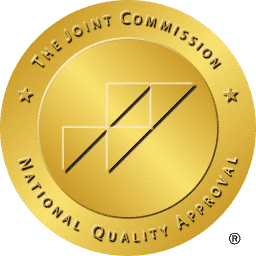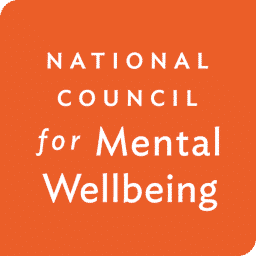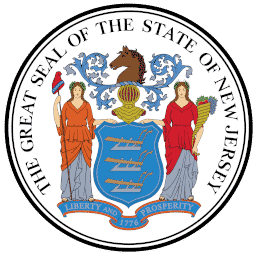Gambling Disorder Program
Gambling Addiction Program
A gambling problem is a complex and often misunderstood issue that can wreak havoc on the lives of those who suffer from it and their families. While it might seem like a harmless pastime, the consequences of compulsive gambling can be devastating, leading to financial ruin, broken relationships, and even criminal behavior.
CarePlus NJ, offers help for those with a gambling problem. Problem or disordered gambling, is a behavioral addiction characterized by the inability to control or resist the feeling of needing to gamble despite harmful consequences. Care Plus NJ has resources to help problem gamblers overcome this debilitating disorder and regain control of their lives. From gambling problems to severe gambling addiction understanding the brain’s reward system is imperative to stop gambling. Recognizing signs, challenging beliefs, finding healthy alternatives, seeking professional treatment & building support networks are key for problem gamblers.
Help for Gambling Addiction
Care Plus NJ’s Gambling Disorder Program is an innovative program designed to address gambling addiction and coexisting mental health, substance abuse and substance use disorders. The program offers a range of specialized services, including individual therapy, group therapy, and care coordination, to help individuals overcome gambling addiction and regain control of their lives.
The best part is that for those eligible, you won’t have to worry about the financial aspect.
Funded by a $120,000 grant from the Department of Mental Health and Addiction Services, Care Plus NJ’s Gambling Disorder Program provides comprehensive, evidence-based treatment options for individuals struggling with gambling addiction.
We offer a range of specialized services to address your specific needs:
- Recovery Support
- Individual Therapy
- Group Therapy
- Case Management
- Care Coordination
- Referrals to Additional Services and Resources
Key Features of Problem or Disordered Gambling Include:
- Compulsive Behavior: Individuals with compulsive gambling often find themselves compelled to gamble excessively and frequently. They may have persistent thoughts about gambling and experience an increasing need to wager larger amounts to achieve the same level of excitement.
- Loss of Control: One of the hallmark signs is the inability to control or reduce gambling despite numerous attempts to do so. Individuals may make repeat unsuccessful efforts to quit or cut back on their gambling activities.
- Preoccupation: People with disordered gambling may be preoccupied with gambling-related thoughts, such as reliving past gambling experiences or planning future bets. This preoccupation can interfere with daily life.
- Coping Mechanism: Some individuals turn to gambling as a way to cope with emotional distress, guilt, anxiety, or depression. Gambling provides temporary relief from these negative emotions, reinforcing the addiction.
- Chasing Losses: Problem gamblers often engage in “chasing” behavior, where they continue to gamble in an attempt to recoup losses, even after experiencing significant financial setbacks.
- Deceit and Concealment: Many individuals with compulsive or pathological gambling resort to lying or concealing the extent of their gambling involvement from family, friends, and loved ones.
- Negative Consequences: Problem gambling can lead to a range of adverse consequences, including damaged relationships, job instability, missed opportunities, and financial crises.
- Dependence on Others: Some individuals may become dependent on others, such as family members or friends, to bail them out of financial difficulties caused by gambling losses.
Understanding Compulsive Gambling
Gambling addiction, also known as a gambling disorder, compulsive gambling, or pathological gambling, is characterized by an individual’s inability to resist the urge to gamble despite the negative consequences it can have on their life.
This gambling behavior can leads to increased risk and trouble controlling everyday life, managing money, and disturbing family finances. Repeated unsuccessful efforts to pay bills and credit card statements can become risk taking behaviors for those with addictive disorders. Gambling problems to online gambling sites, slot machines, and betting shops highlight a problem gamblers impulse control disorder that can financial ruin, emotional turmoil, and strained relationships with friends and family members.
To overcome gambling addiction, it’s pivotal to comprehend its root causes and psychological underpinnings.
The Psychology Behind Problem Gambling
The psychology of a gambling disorder lies in the stimulation of the brain’s reward system by the act of gambling, in a manner similar to drug or alcohol consumption (substance use disorder). This release of dopamine can lead to a sense of euphoria and excitement, driving individuals to continue gambling in pursuit of these pleasurable feelings.
The American Psychiatric Association officially recognized gambling addiction as a psychological disorder by including it in the Diagnostic and Statistical Manual of Mental Disorders (DSM-5).
As the addiction progresses, pathological gamblers may develop a tolerance for gambling, requiring riskier bets and larger sums of money to achieve the same level of gratification.
Risk Factors and Causes of Problem Gambling
There is no one-size-fits-all cause for a gambling problem, as various factors can contribute to its development. Genetic predisposition, environmental factors, and underlying mental health issues can all play a role in the onset of compulsive gambling.
Pathological gamblers and drug users exhibit similar tendencies, such as impulsivity and reward-seeking behaviors. These traits are thought to be linked to genetic predispositions. Additionally, financial desperation, the thrill of betting, and the stimulating atmosphere of gambling venues can also contribute to the development of gambling addiction.
Recognizing Signs and Symptoms of Problem Gamblers
Spotting the signs and symptoms of problem gambling or gambling addiction expedites the process of seeking help and support. Common indicators include:
- A feeling of lack of control
- Difficulty in ceasing gambling activities
- Exceeding the intended amount of money lost
- Regret about the amount of money lost
- Attempting to recover losses through further gambling
The consequences of compulsive gambling can extend beyond financial troubles for compulsive gamblers, as gambling affects their lives, leading to deception, secrecy, and mood swings, all while they chase after gambling money and experience losing money gambling.
Gambling money one does not have is actually stealing money. Problem gambling and pathological gamblers actual believe they can stop gambling anytime they want. The lost money is just part of the process of winning. Promising family members and themselves to not start gambling for a period of time or to postpone gambling for an event is typical behavior for addicted gamblers.
Early intervention for a gambling problem can stave off severe consequences and support a healthier lifestyle. By recognizing these signs and symptoms, individuals can seek appropriate resources and treatment options to overcome their gambling addictions and regain control of their lives.
Facing Gambling Addiction
A multifaceted approach is necessary to conquer gambling addiction, which entails identifying triggers, contesting negative beliefs, and replacing gambling behaviors with healthy alternatives.
With a better understanding of problem gambling, behavioral addictions and their underlying causes, a gambling addict can develop tailored strategies to address their specific needs and circumstances.
Identifying Triggers and High-Risk Situations
Triggers can come in many forms: situations, thoughts, feelings, or behaviors. When they occur, people often have a strong urge to gamble. Discerning these triggers and high-risk situations is key to evade potential relapses and sustain progress throughout recovery. By recognizing their triggers, individuals can develop strategies to manage or avoid these situations, ultimately reducing the likelihood of succumbing to gambling urges.
Some common triggers may include:
- Stress
- Financial strain
- Social pressure
- Exposure to gambling venues or advertisements
Recording these triggers in a journal can help individuals develop an awareness of their patterns and devise strategies to cope with or avoid them.
Challenging Beliefs and Negative Thinking
Overcoming problem gambling addiction necessitates the challenging of beliefs and negative thinking patterns. Irrational thoughts and beliefs, such as the conviction that one can control or predict the outcome of gambling activities or the assumption that gambling is a way to resolve financial issues, can perpetuate the addiction.
By recognizing the irrationality of these thoughts and replacing them with more constructive ones, individuals can challenge their beliefs and negative thinking, ultimately leading to healthier thought processes and behaviors.
Finding Healthy Alternatives
To replace maladaptive coping mechanisms with more positive ones, it’s important to pinpoint healthy alternatives to gambling. Here are some examples of healthier alternatives to gambling that can help individuals manage unpleasant feelings and emotions:
- Engaging in physical activity
- Socializing with individuals who do not gamble
- Pursuing new interests
- Utilizing relaxation strategies
By exploring and engaging in healthier activities, individuals can develop a stronger sense of self-worth, resilience, and overall well-being, ultimately reducing the allure of gambling as a coping mechanism.
Coping with Cravings and Lapses
During recovery, managing cravings and lapses is vital to uphold progress and prevent relapse. Techniques for managing cravings include the ability to postponing gambling, visualizing potential negative outcomes, and seeking support from friends, family, or professional resources. For example, if an individual feels a strong need to gamble, they can practice delaying the decision to gamble, contemplate the potential consequences of their actions, and engage in an alternative activity to distract themselves and stop gambling.
By developing healthy coping strategies and seeking support when needed, individuals can effectively manage cravings and lapses, ultimately accumulating a new way of life and successful recovery from gambling addiction.
Seeking Professional Help and Support from Care Plus NJ
The quest to overcome gambling addiction necessitates seeking help and support, such as gambling addiction treatment options from a mental health professional. Treatment options and support networks can provide guidance, resources, and encouragement throughout the recovery process.
Types of treatment options include cognitive-behavioral therapy, 12-step programs, and medication-assisted treatment.
Types of Treatment Options
Cognitive-behavioral therapy (CBT) is a widely recognized and effective treatment for gambling addiction, focusing on changing unhealthy gambling behaviors and thoughts.
Support groups and 12-step programs, such as a Gamblers Anonymous Meeting, provide a non-judgmental environment for recovering gambling addicts to share their experiences and receive support from others who have faced similar challenges.
Medication-assisted treatment, which combines medication with counseling and other support services, can help individuals manage their cravings and decrease their chances of relapse.
Building a Support Network
Building a support network of friends, family, and professionals can provide encouragement and accountability during the recovery process. By connecting with others who understand the challenges of overcoming gambling addiction, individuals can gain valuable insights, resources, and motivation to stay on track with their recovery goals.
Support networks and groups can also help individuals navigate the emotional ups and downs of recovery and offer guidance in times of crisis or relapse.
Helping a Loved One with Gambling Addiction
Offering support and encouragement to a loved one with gambling addiction, while respecting their autonomy and decision to seek help, can be a challenging and emotionally charged task.
By understanding the addictive behavior and its impact, loved ones can better empathize with the struggles faced by those with a gambling problem and offer constructive guidance and resources to assist them in their recovery journey.
Young Adults and Addictive Behaviors
With the surge of gambling online, which has elevated the accessibility and addiction potential, it’s important to acknowledge its impact and formulate strategies and seek help.
Online gambling can pose a greater risk of addiction due to its convenience and anonymity, making it even more challenging for individuals to resist the urge to gamble. By learning techniques such as avoiding triggers, refuting negative thinking, and discovering healthy alternatives, individuals can better manage their online urges and reduce the risk of developing a compulsive gambling.
Prevention Gambling Addiction
Education, early intervention, and healthy coping mechanisms are proactive measures to prevent the onset of a gambling disorder. By raising awareness of the signs, symptoms, and consequences of gambling addiction, individuals can make informed decisions about their gambling behaviors and seek help when needed.
Early intervention can help treat gambling addiction, mitigating its progression and ultimately leading to a healthier and more fulfilling life.
Get Help Today at Care Plus NJ Advanced Outpatient Program
Are you finding yourself irresistibly drawn to gambling, and it’s causing disruptions in your finances, career, or relationships? If this sounds familiar, you’re not alone, and we’re here to support you. Care Plus NJ’s advanced outpatient program is tailored to address problem gamblers. We’ve created this program with your needs in mind. Our goal is to help you navigate the complexities of problem gambling, uncover the triggers behind your urges to gamble, and provide you with the tools necessary to break free from this habit. Our team of experienced counselors will be by your side every step of the way, offering unwavering support and expert guidance as you journey toward recovery.
You have choices when it comes to our program. You can opt for our flexible outpatient program, which is available both in-person and virtually. This ensures you can receive the treatment you need while maintaining a balance between your home and work life. If you’re ready to take that crucial first step toward a brighter future, we encourage you to reach out to us today and explore what our program has to offer. Our mission is to help you regain control of your life and overcome problem gambling.
Gambling addiction is a complex and often misunderstood issue that can have devastating consequences for individuals and their family members. By understanding the underlying causes, recognizing the signs, and employing effective strategies for addressing compulsive gambling, individuals can regain control of their lives and achieve lasting recovery. Whether you or a loved one is struggling with gambling addiction, it is crucial to seek help, build a support network, and remain steadfast in your commitment to change. Recovery is possible, and a better future awaits.
Frequently Asked Questions
Gambling addiction can be identified through a lack of control, difficulty in stopping, exceeding the intended budget, regretting losses and continuing to gamble to try to recover them.
Keep a journal of when you are most likely to experience urges to gamble, so that you can recognize and develop strategies to cope with or avoid your triggers.
Treatment options for gambling addiction include Cognitive Behavioral Therapy, support groups such as Gamblers Anonymous, and programs offered by mental health and addiction centers.
Show your loved one that you are there for them and support their decision to seek help. Educate yourself about gambling addiction and the impact it has on family life, and provide resources that can help in their recovery journey.
To prevent gambling addiction, educate yourself on the risks, be proactive in recognizing signs of problem behavior, and focus on developing positive coping mechanisms.








